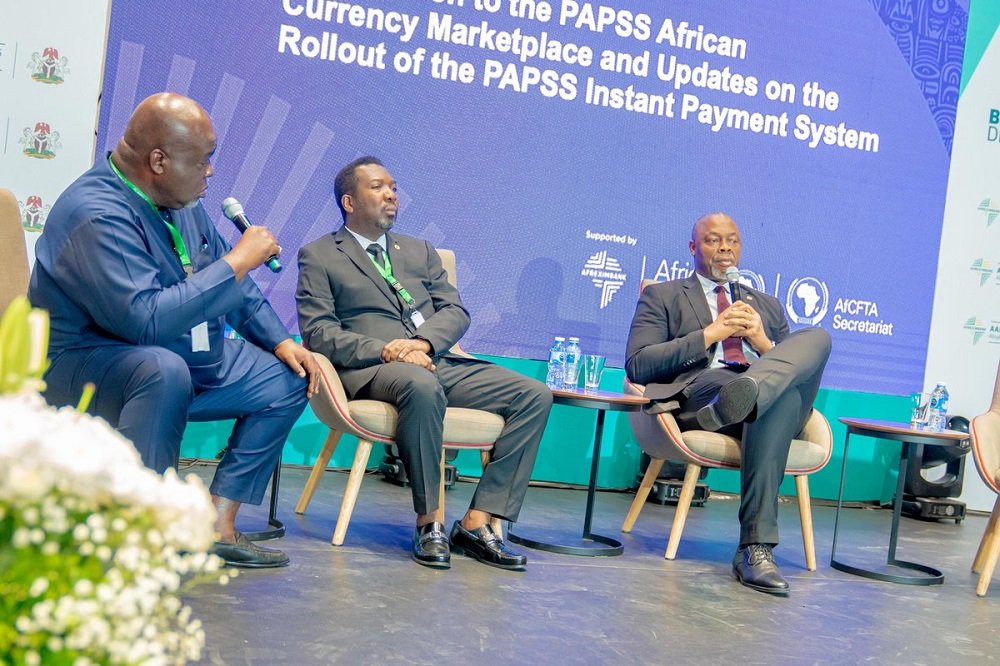For decades, African businesses have been caught in a paradox. While the continent brims with entrepreneurial energy and untapped potential, its economic progress has been stifled by a fragmented financial system. The inability to seamlessly exchange currencies across borders has forced many into a costly dance with third-party hard currencies, siphoning billions in unnecessary fees and trapping capital in bureaucratic limbo.
However, this is soon to be a thing of the past as the launch of the PAPSS African Currency Marketplace (PACM) at the 2025 Afreximbank Annual Meeting in Abuja, Nigeria marks a pivotal moment in Africa’s journey toward financial sovereignty, offering a long-awaited remedy to the continent’s currency convertibility crisis.
With 41 distinct currencies, each governed by its own regulatory maze, African businesses seeking to trade across borders have had no choice but to route transactions through external hard currencies like the US dollar or euro. This workaround cost the continent an estimated Sh646.03 billion ($5 billion) annually in fees, delays, and lost opportunities.
This has undermined the promise of the African Continental Free Trade Area (AfCFTA), which envisions a unified economic bloc, but has struggled with the practicalities of moving money across sovereign borders. As a result, PACM, the brainchild of the Pan-African Payment and Settlement System (PAPSS), in strategic collaboration with Interstellar, a leading African deep-tech company, is designed to shatter these constraints.
By enabling direct, real-time exchange of African currencies without intermediary conversions, PACM eliminates the inefficiencies that have plagued intra-African trade for generations. Businesses will now be able to bypass the cumbersome reliance on hard currencies, trading directly in local tender while adhering to national regulations.
Take Kenya Airways (KQ), for example, which earns revenue in Nigerian naira from ticket sales but has historically faced hurdles repatriating those funds due to exchange restrictions. With PACM, the airline can now convert naira to Kenyan shillings instantly, freeing up capital that was once locked in financial limbo. In fact, early adopters like ZEP-RE (PTA Reinsurance Company) and Access View Africa have already hailed the platform as transformative, with pilot phase transactions spanning 12 currency pairs and involving over 80 African corporations.
At the heart of PACM lies a sophisticated yet user-friendly infrastructure built on Interstellar’s blockchain-agnostic technology, ensuring security, scalability, and near-instant settlement. According to Ernest Mbenkum, Founder and CEO of Interstellar, PACM was built from the ground up to serve Africa’s specific needs. “African currencies deserve a better place in the world,” he declared. “With this marketplace, your local currency is no longer just a medium of exchange; it becomes a vehicle of opportunity,” he added.
PACM is poised to reshape industries. Airlines, which collectively grapple with over Sh258.41 billion ($2 billion) in trapped capital across the continent, stand to gain immensely. So too do reinsurance firms, manufacturers, and SMEs that have long struggled with the inefficiencies of cross-border payments. According to Mike Ogbalu III, CEO of PAPSS, the platform has the potential to unlock liquidity and fuel intra-African trade.
“By creating a single, continent-wide liquidity pool, PACM serves as a powerful liquidity engine for intra-African commerce. The PAPSS African Currency Marketplace is the answer to that problem—an extension of our commitment to building sovereign, frictionless financial infrastructure for Africa,” he said.
Already, international institutions are expressing an interest in joining the ecosystem. This external validation speaks volumes about the model’s potential to set a new global standard for regional financial cooperation.
As the PACM opens to corporations, banks, and financial institutions across Africa, the question is no longer whether the continent can overcome its financial fragmentation, but how quickly this innovation will accelerate its economic rise.


